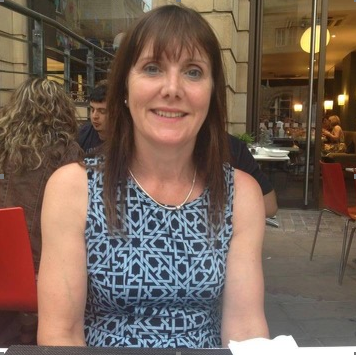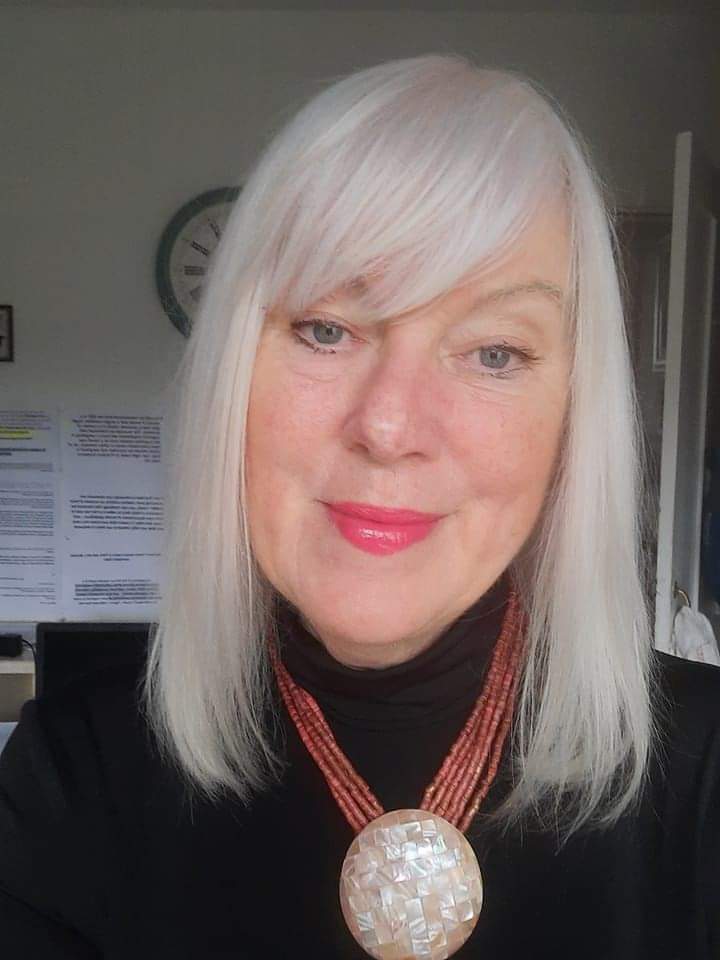‘No shower, cooker or freezer’: Thousands of older women face stark choices in ‘apocalyptic’ cost crisis
Exclusive: ‘I sit in dark in the evenings to economise on electricity. It is lonely and isolating and I feel I am not part of society. My electricity bills have tripled this year. They made me feel quite sick. So I have turned off my radio.’
Your support helps us to tell the story
This election is still a dead heat, according to most polls. In a fight with such wafer-thin margins, we need reporters on the ground talking to the people Trump and Harris are courting. Your support allows us to keep sending journalists to the story.
The Independent is trusted by 27 million Americans from across the entire political spectrum every month. Unlike many other quality news outlets, we choose not to lock you out of our reporting and analysis with paywalls. But quality journalism must still be paid for.
Help us keep bring these critical stories to light. Your support makes all the difference.
Hundreds of thousands of women aged over 65 are struggling as soaring prices cripple their finances, with many forced to turn off fans, cookers and even lights to save money.
Campaigners told The Independent women women are among those hit hardest by the “apocalyptic” cost of living crisis as they warned their physical and mental health are suffering.
Researchers found 55 per cent of women in the over-65 age group are being forced to cut spending on everyday expenses, substantially more than the 44 per cent of men who said the same.
One in three women over 65 in England – about 1.8 million people – are struggling so badly they cannot afford even a £25 monthly increase in their expenses, according to YouGov data exclusively shared by charity Independent Age.
They are also far less likely to cope with a £50 per month increase in their costs than men, the figures show, with 54 per cent of women raising it as an issue compared to 41 per cent of men.
Independent Age’s Morgan Vine said the choices women are being forced to make are “very stark”. Her organisation speaks to elderly people on a daily basis, with many sharing harrowing experiences.
“We have heard from people turning off lights, TVs, and cookers,” she said. “One woman told me she only boils the kettle once a day.
“Women are eating microwave food every day which is not good for their mental or physical health. People can’t afford fresh fruit. All of this is meaning people are mentally very low.”
Ms Vine said another woman had been turning off her fridge overnight to save money on bills despite the potential health risks.
“There are lots and lots of women living in poverty in later life,” she continued. “There are more women than men in this situation in later life. The decisions people are having to make are having a massive impact on their physical and mental health.
“People have said to us they are in a constant state of vigilance constantly checking their bank balance. We are really concerned about the situations older women are living in.
“We think the government needs to provide more for those struggling under the cost of living crisis – particularly with news fuel will go up even more in autumn and inflation is causing food prices to rise.”

Ms Vine noted their research has previously found older women are one of the groups worst impacted by the cost of living crisis – with those who are single hardest hit.
“We already know that women live an average of three and a half years longer than men, so are having to make their already smaller pensions stretch further,” she added.
She warned there are a range of structural inequalities which mean women in older age are more likely to be in a worse financial situation than their male counterparts.
The charity’s analysis of Department for Work and Pensions (DWP) figures spanning from 1995 to 2020 found 20 per cent of women aged over 65 in the UK live in poverty.
The data showed 27 per cent of single women live in poverty in later life, in comparison to 16 per cent of single men.
Jane Drew, one of many Britons struggling during the cost of living crisis, said she had endured “five years of freezing every winter” and was unable to claim winter fuel payment due to her state pension being deferred.
The 65-year-old added: “I am in too much pain most days to continue in work. It is pointless applying for universal credit as I own my own home. It is pointless applying for job seekers as no one in their right mind is going to employ a 65-year-old care worker with a bad back.
“I am living off profit from downsizing my home and that is quickly running out. There is about £4,000 left to last me until end of March.”
Women are eating microwave food every day which is not good for their mental or physical health. People can’t afford fresh fruit. All of this is meaning people are mentally very low
Ms Drew noted she has no savings as she never earned enough as a single parent to put money aside – explaining she is “isolated” because she can’t afford to go and meet friends for a coffee.
“I am dreading this winter,” she added. “I am already cooking on a camping hob so I don’t use gas during the summer. I am having strip washes all week, and a shower on Sunday and one on Wednesday when my son pays for me and my grandson to go swimming. This is not the retirement I was looking forward to.”
Almost 4 million women were impacted by a change which saw the state pension age increased from 60 to 66 for women born after March 1950 in the UK – with the United Nations (UN) previously warning the changes place them at increased risk of “poverty, homelessness and financial hardship”.
BackTo60, a campaign group calling for full restitution for women affected by the state pension age rise, lost its landmark High Court battle against the government last October but appealed the ruling at the end of July – losing the appeal. The state pension age rise was accelerated in 2010 and saw women reach parity with men, at 65, in 2018.
Julia Jacobs, who lives in the West Midlands, told The Independent she goes from one month to the next with nothing in her bank account.

The mother-of-four said she was dependant on her state pension due to spending most of her adult life bringing up four children and project-managing properties she bought with her former husband. Due to the state pension age going up, Ms Jacobs has to wait another four years to receive her state pension.
The 62-year-old said: “I sit in dark in the evenings to economise on electricity. It is lonely and isolating and I feel I am not part of society.
“My electricity bills have tripled this year. They made me feel quite sick. So I have turned off my radio and my Alexa. I have got rid of the freezer. Now I have just got a small fridge freezer. I’ve turned off my electric hob and electric oven and bought a 30 quid air fryer from Aldi. It uses less fuel.”
Ms Jacobs was working as a part-time exam invigilator on a zero-hour contract before the coronavirus crisis but is now living off life savings.
Deena Wild, who lives in Kent, said she has spent years being forced to live on savings intended for retirement.
The 64-year-old, who was also hit by the state pension age rise, said: “We live extremely frugally. We live on my husband’s wages. He is a general handyman.”
Women are prisoners in their homes. Their incomes don’t allow them to socialise in the way many people are used to so the television is the only entertainment
Ms Wild explained her 60-year-old husband, who has a bad hip, bad back and a bad neck, has been forced to “work flat out” as her state pension was deferred – warning the work is placing his health at risk.
“I am watching him decline before my eyes, I am watching myself decline through stress and anxiety. I have high blood pressure, heart issues and diabetes. I don’t sleep at night because my brain is overloaded.”
Joanne Welch, founder of Backto60, told The Independent: “There is no doubt about it, women are struggling. We are so concerned now. We are facing an apocalyptic cost of living crisis. There are tens of thousands of women out there in dire straits.
“It is happening to many vulnerable groups. However 1950s women are some of those who are least resilient to encounter this.”
“Women are prisoners in their homes. Their incomes don’t allow them to socialise in the way many people are used to so the television is the only entertainment.
“During the recent extreme heat, there was a woman who was worried about putting her fan on because she couldn’t afford it. With extreme heart you need the fan on the whole time. I can’t believe some of the things I hear. They get so worn down physically and mentally, it affects their health.”
Ms Welch said many 1950s women who were impacted by the state pension age rise have accrued debts due to not having enough money to subsist.
“There are also middling women, who have now got their pension, who are keeping their heads above water, breaking even, just about living, but living a half-life,” she explained.
“They planned to retire at 60, but spent up to six years waiting for their pension, and accrued debt, and were forced out into a job market when nobody wants to employ them.”
A spokesperson for the DWP said: “We understand that many people are worried about the impact of rising prices, which is why we’re providing £37bn additional cost of living support, including £1,200 in payments for the 8 million most vulnerable households.
“For people over state pension age, there is a wide range of further financial support available, including pension credit – which unlocks an additional £650 cost of living payment for those currently claiming it – plus an additional £300 top-up to pensioner households’ winter fuel payments later this year.”
Subscribe to Independent Premium to bookmark this article
Want to bookmark your favourite articles and stories to read or reference later? Start your Independent Premium subscription today.




Join our commenting forum
Join thought-provoking conversations, follow other Independent readers and see their replies
Comments